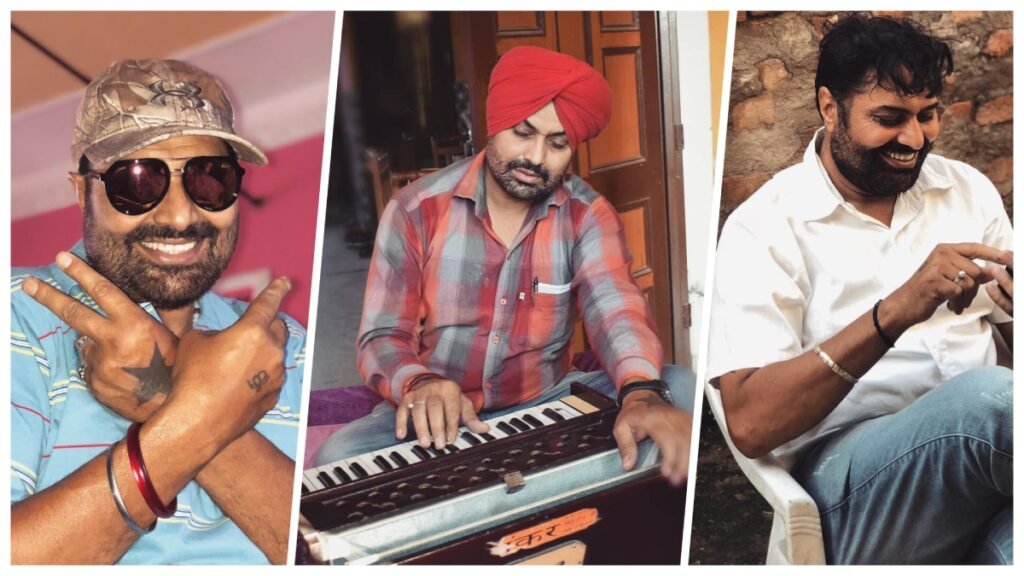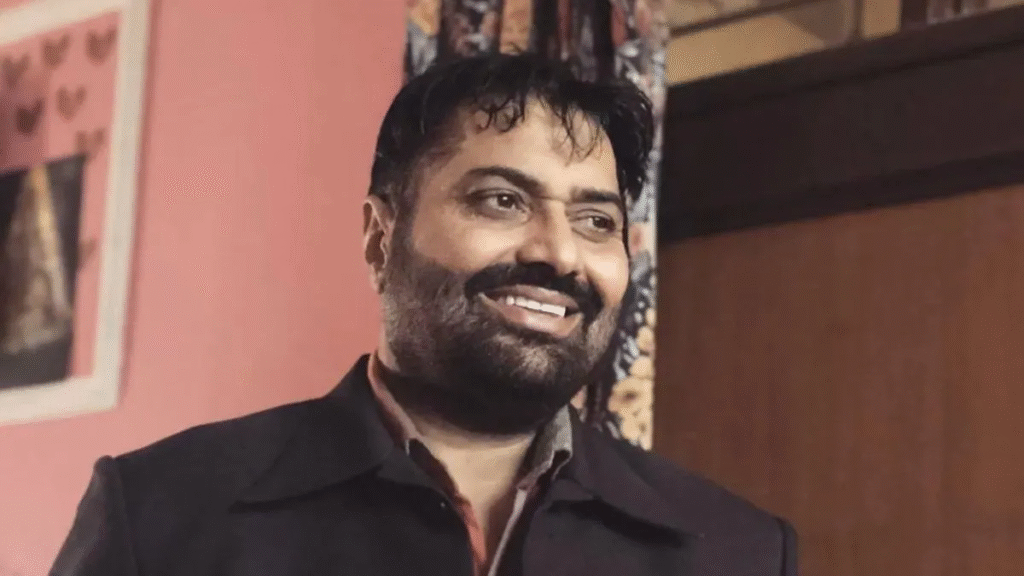Gurmeet Maan was a renowned Punjabi folk singer, police officer, and cultural icon whose soulful voice captured the spirit of rural Punjab and touched millions across generations. His journey from humble beginnings to becoming a respected figure in both the music industry and law enforcement exemplifies dedication, authenticity, and a love for tradition.
Gurmeet Maan’s passing on October 10, 2025, marked a poignant moment in Punjab’s musical history. At just 35, he had captivated audiences with soulful folk songs, comedy, and an unwavering commitment to his dual roles as an artist and Assistant Sub-Inspector (ASI) in Punjab Police. His story exemplifies the beautiful confluence of tradition, service, and enduring values.
Early Life & Family Roots
Born in Ropar, Punjab, in 1968, Gurmeet Maan was shaped by the rhythms and rituals of his village. Childhood for Maan meant lively fairs, communal celebrations, and a deep immersion in folk storytelling. Gurmeet, a family anchor, maintained privacy regarding loved ones, but the media confirms his close-knit nature.
- Wife: Served as Punjab Police Sub-Inspector, mirroring Maan’s commitment to public service.
- Son, Gaurav Maan: Based in Canada, has expanded his father’s musical legacy on international platforms.
- Daughter, Gunbi Maan: Active in Hindi cinema and Tollywood, passionate about singing and performing.
Their journey together personifies strength, resilience, and continuity, a hallmark of Punjabi families.
Key Details:
Balancing Policing and Art
Gurmeet Maan bridged tradition with professional duty. As an ASI, he upheld law and order while inspiring respect and humility within his community. Stories abound of his dedication to both music and service, showing that artistry and discipline need not be exclusive. The dual calling fostered admiration, especially among Punjab’s youth.
Musical Style and Contribution
Maan’s voice is described as “the heart of the Punjabi countryside”, raw, emotional, and profoundly authentic. His songs explored love, sorrow, joy, and the everyday struggles of the rural poor.
Key Songs and Collaborations
- “Sohreyan Da Pind”
- “Chandigarh In Room”
- “Boliyaan”
- “Boli Main Pawan”
- “Kake Dian Purhian”
Collaborations, notably with Preet Payal, deepened his reach across generations, blending classic folk forms with modern sensibilities. Live performances at wedding stages and local fairs galvanised his reputation as a true cultural custodian.
Acting and Comedy
Gurmeet’s career wasn’t limited to music. He ventured into comedy and acting, bringing smiles to audiences and nurturing new artistic talent.

Health Challenges and Final Goodbye
Gurmeet’s last years were marred by persistent heart and kidney problems. Stenting procedures did little to curb declining health, and the days before his passing saw a rapid deterioration. His death, coming shortly after the loss of Rajvir Jawanda and Varinder Singh Ghuman, added to Punjab’s collective grief.
His last rites were performed at Hardowal in Gurdaspur, with grieving fans and family in attendance.
Achievements, Impact, and Economic Success
Gurmeet Maan’s achievements span disciplines and generations. He is remembered not just for songs but for:
- Revitalising fading folk traditions.
- Supporting cultural preservation, inspiring both artists and listeners.
- Achieving economic success through stage shows, albums, and live events, with a net worth cited between Rs 2.74–28.1 crores.
- Encouraging youth to balance dreams, duty, and heritage.
- Being a voice for everyday Punjabis, ensuring that village culture remains celebrated.
Legacy and Social Reverberations
The aftermath of his death saw a surge of tributes; fans, families, and fellow artists united to honour the “voice of everyday people”. His music continues to play in villages, city homes and on international stages, especially through the efforts of his children.
Social media and community gatherings reminisced about his humility, artistry, and profound impact on Punjabi identity. He will forever symbolise the enduring strength of tradition in an evolving world.
FAQs About Gurmeet Maan
What are Gurmeet Maan’s key professional achievements?
Gurmeet balanced a law enforcement career as an ASI with a celebrated career as a folk singer, producer, and actor, keeping Punjabi traditions alive.
Who are his immediate family members?
Gurmeet was married to a Punjab Police Sub-Inspector. His son, Gaurav, is in Canada promoting his legacy, and his daughter, Gunbi, works in Indian cinema and music.
What health problems did Gurmeet Maan face?
He battled lingering heart issues and kidney damage, necessitating stenting and medical care for several years before his passing.
Which songs made Gurmeet Maan famous?
“Sohreyan Da Pind,” “Chandigarh In Room,” “Boliyaan,” “Boli Main Pawan,” and “Kake Dian Purhian” are fan favourites that reflect rural life.
How did Gurmeet Maan exemplify tradition and modernity?
He seamlessly blended police service with artistry, reviving rural folk culture and maintaining humility in his private life.
What is the significance of his last rites location?
Gurmeet’s last rites were performed at Hardowal, Gurdaspur, a return to his roots and village tradition.
How do his children contribute to his legacy?
Gaurav Maan oversees his father’s music worldwide, while Gunbi continues the artistic tradition in India’s entertainment sector.
Why is Gurmeet Maan revered as a cultural icon?
He stood for discipline, humility, authenticity, and artistic innovation, enshrining the heart of Punjab in every song and gesture.

